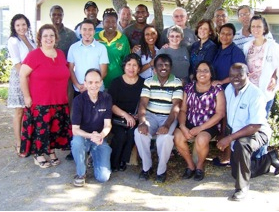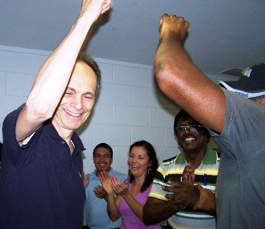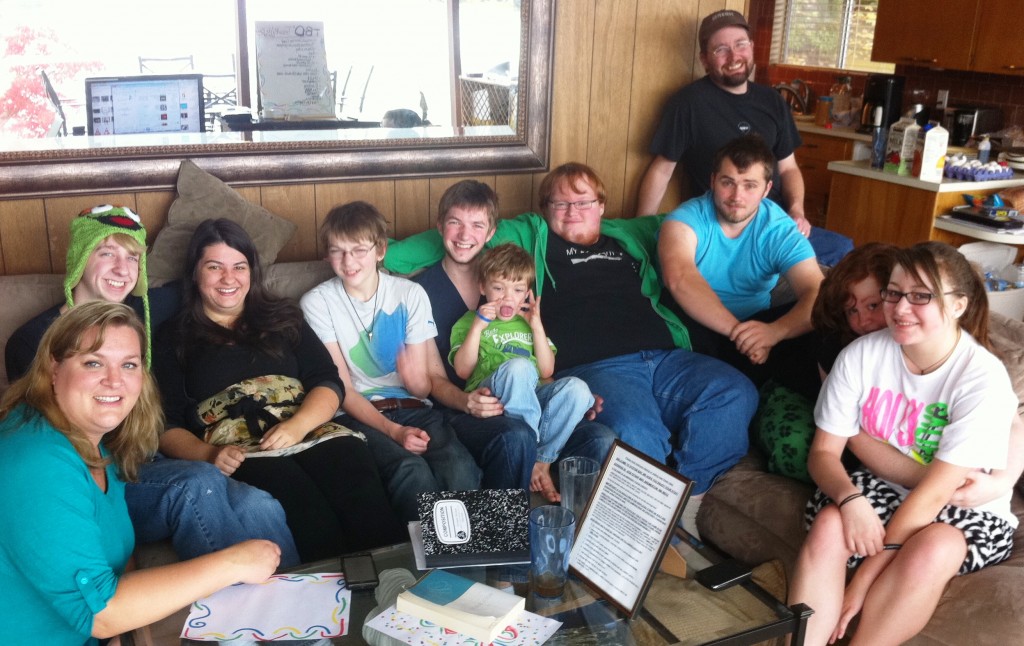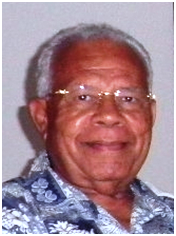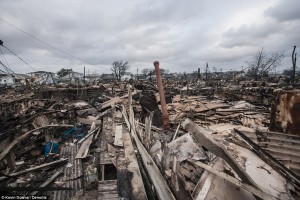Dear Brothers and Sisters in Christ,
 Our thoughts and prayers continue to be with the millions of people still struggling in the aftermath of superstorm Sandy. Reports from GCI pastors in affected areas in the Eastern US and the Caribbean region indicate that our members were largely spared the worst (see the update linked at left). For that we are most grateful, though our hearts ache for the thousands who lost loved ones and property.
Our thoughts and prayers continue to be with the millions of people still struggling in the aftermath of superstorm Sandy. Reports from GCI pastors in affected areas in the Eastern US and the Caribbean region indicate that our members were largely spared the worst (see the update linked at left). For that we are most grateful, though our hearts ache for the thousands who lost loved ones and property.
This week the US presidential election was held and President Barack Obama was re-elected in a bitterly-contested, often divisive election. Isn’t it ironic how elections can bring out the worst in people, while natural disasters like Sandy can bring out the best? It seems that when confronted with catastrophe, we set aside partisan politics to come to the aid of others. In the wake of Sandy, there were many heartwarming stories of selflessness, generosity and genuine heroism (though, sadly, there were also stories of looting and other selfish acts).
These positive reactions give us hope in the midst of appalling loss—pointing us to the time when loving one’s neighbor as oneself will not make news because it will be the way lived by all. Acts of selflessness and reconciliation are the heartbeat—the agenda—of Jesus’ Kingdom of love. And Jesus has commissioned us as his followers to share now, through the Spirit, in his Kingdom way of being and living. As we do, we give to the world powerful testimony to the way things can be.
I’m reminded of a letter written in the second century to a man named Diognetus. Though we don’t know who wrote it, or who Diognetus was, it is a powerful example of the testimony of the Christian life—in this case during a time when Christians were being terribly persecuted. Here is an excerpt:
Christians are indistinguishable from other men either by nationality, language or customs. They do not inhabit separate cities of their own, or speak a strange dialect, or follow some outlandish way of life. Their teaching is not based upon reveries inspired by the curiosity of men. Unlike some other people, they champion no purely human doctrine. With regard to dress, food and manner of life in general, they follow the customs of whatever city they happen to be living in, whether it is Greek or foreign.
And yet there is something extraordinary about their lives. They live in their own countries as though they were only passing through. They play their full role as citizens, but labor under all the disabilities of aliens. Any country can be their homeland, but for them their homeland, wherever it may be, is a foreign country. Like others, they marry and have children, but they do not expose them. They share their meals, but not their wives.
They live in the flesh, but they are not governed by the desires of the flesh. They pass their days upon earth, but they are citizens of heaven. Obedient to the laws, they yet live on a level that transcends the law. Christians love all men, but all men persecute them. Condemned because they are not understood, they are put to death, but raised to life again. They live in poverty, but enrich many; they are totally destitute, but possess an abundance of everything. They suffer dishonor, but that is their glory. They are defamed, but vindicated. A blessing is their answer to abuse, deference their response to insult. For the good they do they receive the punishment of malefactors, but even then they rejoice, as though receiving the gift of life. They are attacked by the Jews as aliens, they are persecuted by the Greeks, yet no one can explain the reason for this hatred.
To speak in general terms, we may say that the Christian is to the world what the soul is to the body. As the soul is present in every part of the body, while remaining distinct from it, so Christians are found in all the cities of the world, but cannot be identified with the world. As the visible body contains the invisible soul, so Christians are seen living in the world, but their religious life remains unseen. The body hates the soul and wars against it, not because of any injury the soul has done it, but because of the restriction the soul places on its pleasures. Similarly, the world hates the Christians, not because they have done it any wrong, but because they are opposed to its enjoyments.
Christians love those who hate them just as the soul loves the body and all its members despite the body’s hatred. It is by the soul, enclosed within the body, that the body is held together, and similarly, it is by the Christians, detained in the world as in a prison, that the world is held together. The soul, though immortal, has a mortal dwelling place; and Christians also live for a time amidst perishable things, while awaiting the freedom from change and decay that will be theirs in heaven. As the soul benefits from the deprivation of food and drink, so Christians flourish under persecution. Such is the Christian’s lofty and divinely appointed function, from which he is not permitted to excuse himself.
[From The Apostolic Fathers, ed. Michael Holmes, p. 541]
Your brother in Christ’s service,
Joseph Tkach
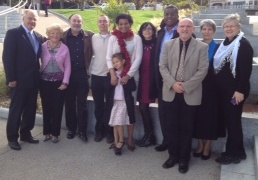
P.S. Last week, following the GCI conference in the UK, I visited our French church’s Festival of the Kingdom held in Evian on the shores of Lake Geneva. European mission director James Henderson and his wife, Shirley accompanied me. As usual it was an encouraging and uplifting experience. Just before the festival, Gerard Stevenin retired from his various official roles in the church. We thank Gerard and his wife, Francoise, for many years of selfless service. The members of the church met in a special assembly while in Evian and unanimously nominated Dominique Alcindor to serve as president of Eglise Universelle de Dieuthe, the GCI association in France; and Marie-Angelique Picard to serve as president of Prudentielle, the business arm of the association. Just before we left, James and I offered a prayer of thanksgiving for the new leadership and for GCI in the nation of France.


